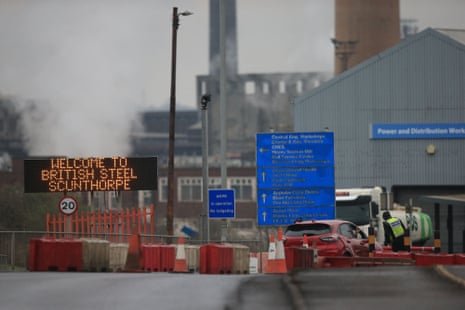London Underground drivers to strike on March 15
London Underground drivers are to strike on March 15 – Budget Day – in a dispute over pensions and working arrangements.
The Aslef union has announced that members will strike for 24 hours, in a dispute over changes to working arrangements and pensions.
ASLEF members in other roles on the Underground – including Test Train and Engineering train drivers and those in management grades – also voted in favour to strike, the union says, and will take action on the 15th March as well.

Tube train drivers voted by 99% in favour of strike action, on a turnout of 77%.
Finn Brennan, ASLEF’s full-time organiser on the Underground, warns that there will be a ‘protracted dispute’ unless Transport for London works with the union.
‘The size of these “Yes” votes, and the large turnouts, show that our members are not prepared to put up any longer with the threats to their working conditions and pensions. We understand that TfL faces financial challenges, post-pandemic, but our members are simply not prepared to pay the price for the government’s failure to properly fund London’s public transport system.
‘Cuts to safety training have already been forced through and management is open that they plan to remove all current working agreements under the guise of “modernisation” and “flexibility” and to replace the agreed attendance and discipline policies. Proposals to slash pension benefits are due to be announced in the next week.
‘We are always prepared to discuss and negotiate on changes, but our members want an unequivocal commitment from TfL that management will not continue to force through detrimental changes without agreement.
‘Unless they are prepared to work with us, and accept that changes have to come by agreement, and bring real benefits to staff, rather than just cuts and cost savings, this will be only the first day of action in a protracted dispute.’
BREAKING: Tube drivers on London Underground to strike on March 15, Aslef union announces.
– Network expected to close.
– Day before major Network Rail walkout on March 16 which will also impact some Tube services #rail #aslef #railstrike
— Ben Clatworthy (@benclatworthy) February 22, 2023
Key events
Aldi has become the latest supermarket chain to impose limits on purchases of salad and vegetables in the UK.
The German-owned discounter announced on Wednesday it is limiting purchases of peppers, cucumbers and tomatoes to three packs a person.
An Aldi UK spokesperson said.
“We are limiting purchases of peppers, cucumbers and tomatoes to three units per person to ensure that as many customers as possible can buy what they need,”
This follows rivals Asda and Morrisons, who are also rationing supplies of some fruit and vegetables after production was hit by disrupted harvests in southern Europe and north Africa. Supplies from British farms have also dropped, due to the rising cost of heating greenhouses to grow salad crops.
Shares in Cineworld are down almost 15% in London today after it emerged the world’s second-biggest cinema chain is yet to receive any offers to buy the whole company out of bankruptcy.
Cineworld filed for bankruptcy protection in the US last September, and is seeking interested parties to bid for the company. It owns the Regal Cinemas chain in the US and the Picturehouse brand in the UK, as well as movie theatres in central Europe, eastern Europe and Israel.
Cineworld attorney Joshua Sussberg told Texas Bankruptcy Court Judge Marvin Isgur at a hearing on Tuesday that it had reached out to 40 potential buyers – resulting in “many” offers for the rest-of-world assets and “some strategic interest in the full business”.
But, Sussberg told the court that it was yet to receive firm offers for the entire business
“We did not receive any all-cash bids, and no bid came anywhere near the $6 billion of secured indebtedness that exists on on the company’s balance sheet today.”
Ambulance staff and other health workers who are a part of Britain’s Unison trade union will take strike action on March 8, PA Media reports.
UNISON say health service members in England will go on strike on March 8th – nine more employers than before including 4 more ambulance services – could involve up to 32,000 staff
— Hugh Pym (@BBCHughPym) February 22, 2023
Over on Wall Street, chipmaker Intel has cut its dividend by 66%, weeks after announcing wide-ranging cost cuts, as it tries to strengthen its business.
The chip company has announced it will pay a quarterly dividend of $0.125 a share beginning in June, down from $0.365 a share during last year.
Intel says the move “reflects the board’s deliberate approach to capital allocation and is designed to best position the company to create long-term value”.
Since 1992, Intel says it has returned over $80bn to its stockholders, and remains committed to “maintaining a competitive dividend”.
Intel CEO Pat Gelsinger says it’s important to allocate capital prudently, as it pushes through his “IDM 2.0 strategy” – an upgrade to Intel’s integrated device manufacturing (IDM) model, which includes investing $20bn in two new chip fabrication plants in Arizona.
It’s been 328 days since $INTC announced a $179 mil pay package for CEO Pat Gelsinger – he has delivered a -50% stock price performance and a 2/3 dividend cut to shareholders since pic.twitter.com/Ns5ZGjP61T
— Tom Hearden (@followtheh) February 22, 2023
Network Rail says strike negotiations in ‘hiatus’ after rejection of latest offer
Elsewhere in the transport industry, Network Rail chief executive Andrew Haines said negotiations to end the industrial dispute with the Rail, Maritime and Transport union (RMT) have “hit a bit of a roadblock”.
He told reporters at a briefing at London’s Waterloo station:
“The railways are not going to be defined forever by this current action.
“We’ve seen people come back into work. We were 2,000 people away from a yes vote.
“I’ve got a lot of optimism. I’m just frustrated that we’ve taken a turn into a side street, as opposed to actually sticking on the path of getting this to resolution.
“I remain genuinely optimistic we will get a sensible outcome here. But at the moment we’ve hit a bit of a roadblock.”
Haines said Network Rail is “having to take stock” after the RMT refused to put its proposal to a vote, and was now “in a hiatus” while it considers its next steps.
Earlier this month, the RMT rejected pay offers from Network Rail and train operators, prolonging the long-running dispute on the railway, saying the proposals were “dreadful”.
Tim Shoveller, Network Rail’s chief negotiator in the dispute with the RMT, said today the union should put offer to its members:
“I think the RMT has really annoyed their members – our staff – by their refusal to put the revised offer that we made in January to a referendum.
“It’s a sham of an excuse to say that that was rejected on the basis of just going through the branch meetings.
“We can see that because our own staff are telling us that very clearly.
“They’ve been really clear that they want a chance to vote on the deal.”
There could be relief for UK households in the cost of living crisis, investment bank Citigroup believes.
Citigroup has forecast that UK inflation will plunge to 2.3% in November, down from 10.1% in January, thanks to falling energy bills.
That would put inflation close to the Bank of England’s 2% target, and allow the government claim to have achieved its target of halving inflation this year.
The new forecasts reflect the fall in wholesale energy costs. UK next-day gas now costs 127p per therm, down from as much as 405p in December.
UK domestic energy bills are currently capped by the government, at levels where the average household pays £2,500 per year. This is due to rise to £3,000 in April, but analysts then expect a fall in future quarters.
Investec predicts Ofgem’s price cap would hit £3,332 in April and then £2,165 in July, before rising slightly to £2,190 from October.
The Financial Times suggests that Citigroup’s forecasts are a fillip for Rishi Sunak, “potentially making it easier to resolve public sector strikes over pay”.
But, it would not reverse the sharp increases in prices in the shops last year, of course, which were not matched by public sector pay recommendations.
The Bankof England also expects inflation to fall this year, to 3.5% by the end of 2023, and then to just 1% in 2024.
London Underground drivers to strike on March 15
London Underground drivers are to strike on March 15 – Budget Day – in a dispute over pensions and working arrangements.
The Aslef union has announced that members will strike for 24 hours, in a dispute over changes to working arrangements and pensions.
ASLEF members in other roles on the Underground – including Test Train and Engineering train drivers and those in management grades – also voted in favour to strike, the union says, and will take action on the 15th March as well.

Tube train drivers voted by 99% in favour of strike action, on a turnout of 77%.
Finn Brennan, ASLEF’s full-time organiser on the Underground, warns that there will be a ‘protracted dispute’ unless Transport for London works with the union.
‘The size of these “Yes” votes, and the large turnouts, show that our members are not prepared to put up any longer with the threats to their working conditions and pensions. We understand that TfL faces financial challenges, post-pandemic, but our members are simply not prepared to pay the price for the government’s failure to properly fund London’s public transport system.
‘Cuts to safety training have already been forced through and management is open that they plan to remove all current working agreements under the guise of “modernisation” and “flexibility” and to replace the agreed attendance and discipline policies. Proposals to slash pension benefits are due to be announced in the next week.
‘We are always prepared to discuss and negotiate on changes, but our members want an unequivocal commitment from TfL that management will not continue to force through detrimental changes without agreement.
‘Unless they are prepared to work with us, and accept that changes have to come by agreement, and bring real benefits to staff, rather than just cuts and cost savings, this will be only the first day of action in a protracted dispute.’
BREAKING: Tube drivers on London Underground to strike on March 15, Aslef union announces.
– Network expected to close.
– Day before major Network Rail walkout on March 16 which will also impact some Tube services #rail #aslef #railstrike
— Ben Clatworthy (@benclatworthy) February 22, 2023

Speaking to PA Media outside the entrance to the British Steel plant in Scunthorpe, Unite convenor for the site Martin Foster said the move had come “too soon”.
Foster warned that the future of the plant was “a massive worry”, telling PA:
“This site seems to keep shrinking year by year, it’s a fraction of the size it used to be, and every year that goes by we seem to see the whole UK steel industry shrink that little bit more, and nobody seems to want to do anything to stop it.
“So I think it’s time that people like the Government sat up and took notice. I think the £300 million is a welcome amount of money but it just scratches the surface – it doesn’t plan for the long term.
“If we want a sustainable steel industry for the UK for the long term, we need to have a better plan than that – £300 million just buys us some time.”
Last month, it was reported that chancellor Jeremy Hunt was poised to grant a £300m funding package for struggling British Steel.
BREAKING 🚨🏭 | British Steel to axe 260 jobs at Scunthorpe plant
— GMB Union (@GMB_union) February 22, 2023
The Government needs to decide if they want the UK to have a future in steel – or for it to wither and die like so much of our proud manufacturing heritage.
Read more here ⬇️https://t.co/vIFXe9duZO
— GMB Union (@GMB_union) February 22, 2023
British Steel chief executive Xifeng Han says the company is undergoing the biggest transformation in its 130-year history, and that UK steelmaking ‘remains uncompetitive’ compared to rivals.
Xifeng explains:
“Jingye is committed to our long-term future but decarbonisation is a major challenge for our business and, like most companies, we’re facing significant challenges because of the economic slowdown, rising inflation and exceptionally high energy prices.
“For example, last year our energy bill rose by £120 million while we’ve also faced an increase of over £70 million in our annual carbon costs.
“We have taken action to reduce costs within our control; however, steelmaking in the UK remains uncompetitive when compared to other international steelmakers.”
“Our energy costs, carbon costs and labour costs are some of the highest across the world, which are factors that we cannot influence directly.
Unite: We’ll fight to defend every steel job under threat
The Unite union has vowed to fight to defend every job under threat at British Steel’s Scunthorpe plant, through the proposed closure of its coke ovens.
Unite national officer Linda McCulloch suggests this could include strike action, saying:
“This union has not yet seen any financial justification for the closure of the coking ovens. British Steel needs to come clean and open its books in order to try to justify its decisions.
“Unite will pursue every avenue, including industrial action, to defend members’ jobs at British Steel.”
British Steel proposes closure of Scunthorpe coke ovens, with loss of up to 260 jobs
Newsflash: British Steel is proposing to close the coke ovens at its plant in Scunthorpe, with the loss of up to 260 jobs, the company has announced.
This confirms the fears voiced by unions this morning, that the company was planning to cut hundreds of jobs and shutter its coking ovens, which produce the fuel to power its blast furnaces.
The company’s owner, China’s Jingye Group, says the move is partly “to overcome global economic challenges,” and also due to rising costs (such as energy bills).
Jingye says in a statememt:
“Decisive action is required because of the unprecedented rise in operating costs, surging inflation and the need to improve environmental performance.
Community union warns of ‘catastrophic’ impact from steel job losses
The steelworkers union, Community, has warned that it will not accept redundencies if British Steel closes Scunthorpe’s coke ovens, as feared today.
Community’s national officer Alun Davies says the move would threaten the UK’s ability to produce steel, as it would rely on imported coke instead.
Davies say:
“British Steel’s plan to close the coke ovens could have a catastrophic impact on jobs and steel production at Scunthorpe and the UK as a whole.
“This move would see the company depending on unreliable imported coke and puts at risk our sovereign capability to produce steel in the UK for strategic infrastructure such as our rail networks.
“We will not accept redundancies and nothing is off the table when it comes to protecting our members’ jobs.
“The Government must do whatever it takes to reach a deal with British Steel that protects the loyal workforce and the future of steelmaking in this country.”
More encouragingly, German business morale has improved this month.
The Ifo institute’s business climate index has risen to 91.1 for February, up from 90.1 in January.
It adds to signs that Europe’s largest economy is recovering despite the energy crisis and high inflation.
Sentiment among German businesses rose for a 5th consecutive month on a brighter outlook BUT less than expecetd. Ifo Business morale rose to 91.1 in Feb from 90.1 in Jan. Ifo Expectations Index rose to 88.5 vs 88.4 exp. But Ifo Current Assessment Index dropped to 93.5 vs 95 exp. pic.twitter.com/c33CgWQIbu
— Holger Zschaepitz (@Schuldensuehner) February 22, 2023
ING economist Carsten Brzeski says that mild weather and fiscal stimulus measures helped the German economy.
He warns, though, that recession risks haven’t abated, saying:
The current assessment component dropped for the second month in a row and remains weak. It is expectations which surged and they have now improved for the fifth month in a row.
The inflow of optimistic data continues.
After the PMI and the ZEW, it is now the latest Ifo index reading which points to an improving outlook for the German economy.
But @carstenbrzeski explains why those recession fears haven’t gone away.https://t.co/QxMhyjc3DN
— ING Economics (@ING_Economics) February 22, 2023
Taiwan has cut its forecast for growth this year as weak exports continue to drag on the economy.
Gross domestic product is likely to grow 2.12% in 2023, Taiwan’s Directorate General of Budget, Accounting and Statistics said Wednesday. That’s down from 2.75% year-on-year growth predicted in November.
Taiwan, which is home to many major tech companies, has been hit by a slump in exports as high global inflation, interest rate rises and the war in Ukraine hits demand.
The statistics body says:
“Under the influence of monetary tightening by various countries to combat inflation and the stalemate in the Russia-Ukraine war, terminal consumer demand has weakened, product prices have fallen, industrial supply chain inventories have been adjusted, and global economic growth has slowed.”
New data today has shown that Taiwan’s economy shrank by 0.4% in the last quarter of 2022, putting it on the brink of a technical recession.
New data:
– Taiwan is forecast to experience a technical recession, with the economy expected to contract 1.2% in Q1 2023 (after 0.41% contraction in Q4 2022)
– Recovery expected in second half of year
– But GDP forecast for 2023 revised down to 2.12% from 2.75%— James Chater (@james_chater) February 22, 2023
Weaker forecast driven mostly by slowing demand for TW’s exports. Gov’t now forecasting:
– 5.84% y/y contraction in exports over 2023
– from just 0.22% contraction predicted in November— James Chater (@james_chater) February 22, 2023
Lloyds bankers to share £446m bonus pot

Kalyeena Makortoff
Lloyds Banking Group staff will share their largest bonus pot in four years, despite the lender reporting flat profits as it put aside more money to protect against a potential jump in defaults amid ongoing economic uncertainty.
Lloyds, which owns Halifax and is the UK’s largest mortgage lender, said its top performing bankers would share a bonus pool worth £446m for their work in 2022 – up 11% from £399m last year and the largest sum to be distributed among employees since 2018.
The lender also revealed a £3.8m pay packet for its chief executive, Charlie Nunn. However, that is down 31% from the £5.5m he received in 2021, when he was handed a £4.2m buyout to compensate him for shares he gave up when he left HSBC to become Lloyds chief executive in August that same year.
The banking group reported flat profits of £6.9bn for the year, in line with average estimates from analysts, despite recording a near-50% jump in net interest income to £14bn, which accounts for the difference between what the bank pays out to savers and charges its loan and mortgage customers.











